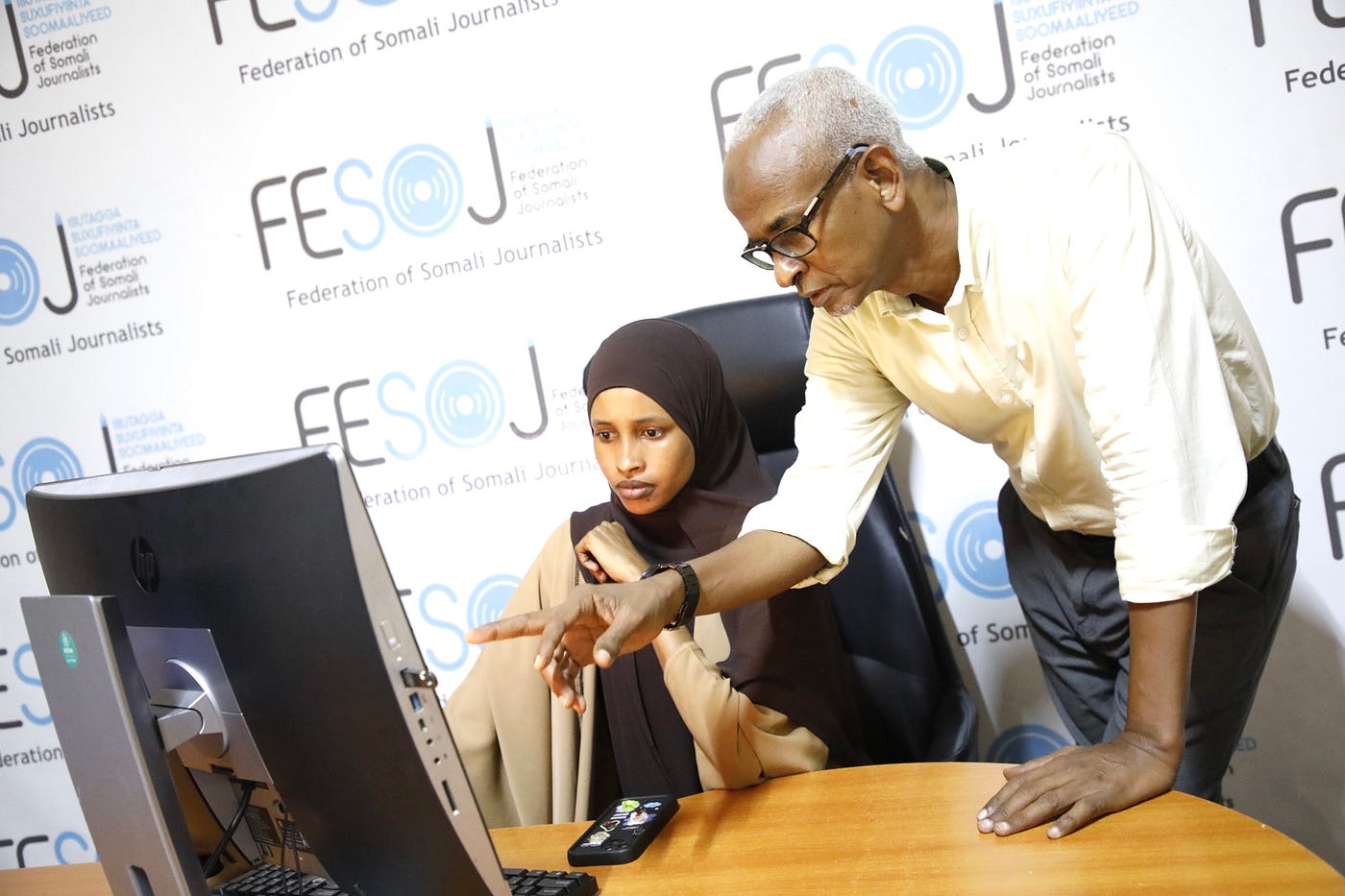
Blogpost Project on Fact-Checking Fellowship for Somalia by Code for Africa: Challenges, Successes, and Outcomes.

Fellows from the Federation of Somali Journalists participated in the Code for Africa (CFA) Fact-Checking Fellowship 2024, a five-month program that began in June and concluded in October. During the fellowship, the team gained valuable skills in verifying images and videos shared on social media.
This fellowship was a great and rare opportunity in Somalia, where journalists had never been to such workshops before.
Trainees practiced fact-checking real-world case studies, applying the techniques they learned to identify false claims. We reviewed common examples of misinformation and disinformation, and trainees shared their findings in group discussions for further learning. With the help of a mentor from the code for Africa.
The trainees attended twelve virtual sessions, during which they studied various courses, most of which dealt with fact-checking. The courses addressed very important issues in the Somali arena. For example, social media is full of fake and modified images, in addition to the publication of modified and incorrect videos, which are attributed to a person or government official, which leads to confusion in independent verification. However, attending these courses provided the team with a deep understanding of this field.
Among the courses attended by trainees are the following:
1.Fundamental techniques for fact-checking
2.Based fact-checking methodologies.
3.Fact-Checking visual claims: photo.
4.Fact-checking visual claims: videos.
5.On platform investigations.
5. Introduction digital security and other important courses.
During the courses, the trainees produced a number of articles containing images and videos that were found to be false after verification. This process was done using the verification tools that the team learned during the fellowship.
The team faced many challenges during the study, including time constraints, limited availability, and difficulty reviewing all examples accurately. Initially, the program included five trainees (four men and one woman), but three withdrew in the second month due to internet and electricity outages or the intensive workload, which made it difficult for them to continue the fellowship. During this period, the duties became burdensome for the two colleagues who remained in the program.
Another challenge is finding a false claim easily on social media platforms and websites. Searching for a false claim takes longer, which made the deadline run out quickly. Because an article had to be submitted every week.
In the past two months, trainees have made progress in independently verifying claims and have gained confidence in using fact-checking tools through intensive practice. Continued practice is encouraged to further enhance these skills. Despite this progress, there remains a pressing need for more fellowships, workshops, and experience exchanges with institutions that support verification programs. Journalists in Somalia need both material and moral support to improve their capabilities and acquire new skills, enabling them to overcome the challenges and obstacles they face.
Finally, the Federation of Somali Journalists (FESOJ), commends the contribution to training their team and extends its thanks and gratitude to the Code for Africa . It also requests that…they continue to cooperate in all areas related to fact-checking and verification. so that we can be a team with full capacity to accomplish major tasks at a time when misleading information is widespread in Somalia, where the average citizen cannot distinguish between correct and incorrect information.
In conclusion: We would like to thank everyone who contributed to the success of the mission, especially. Code for Africa (CFA)and the team that patiently attended the study for five months. We also hope from the Code for Africa (CFA) more programs, fellowships, grants to work forwards raising the capabilities of Somali journalists and acquiring new skills.
By FESOJ team





















